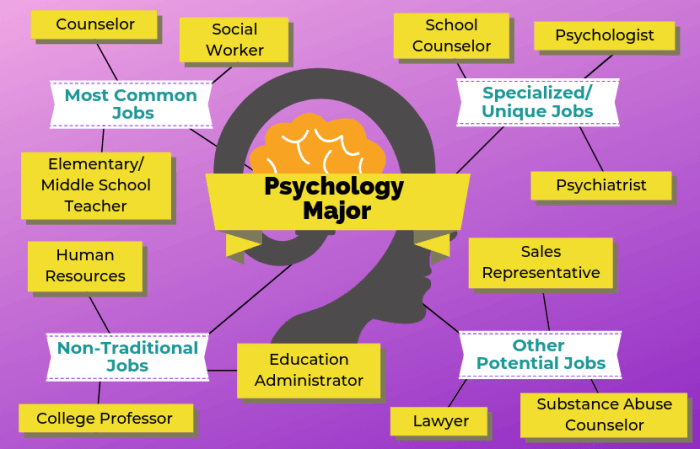Here are some of the most common job titles and descriptions for individuals with master’s degrees in psychology:
Clinical Roles
- Licensed Professional Counselor (LPC): Provides mental health counseling and therapy to individuals and groups, addressing a wide range of mental health issues.
- Licensed Marriage and Family Therapist (LMFT): Specializes in providing therapy to couples and families, focusing on improving relationships and resolving conflicts.
- Clinical Social Worker (LCSW): Provides mental health services in various settings, including hospitals, clinics, and schools, addressing social and emotional issues.
- School Counselor: Works in educational institutions to provide mental health support to students, addressing academic, social, and emotional concerns.
- Rehabilitation Counselor: Assists individuals with disabilities in regaining or improving their physical, cognitive, and emotional functioning.
Non-Clinical Roles
- Human Resources Manager: Develops and implements HR policies and programs, including employee recruitment, training, and benefits.
- Industrial-Organizational Psychologist: Applies psychological principles to the workplace, improving employee productivity, motivation, and satisfaction.
- Forensic Psychologist: Works with law enforcement and the legal system, providing psychological evaluations and expert testimony in criminal cases.
- Researcher: Conducts research in psychology, contributing to the advancement of knowledge and understanding of human behavior.
- Consultant: Provides expert advice and guidance to organizations on psychological issues, such as workplace culture, employee well-being, and marketing strategies.
Skills and Qualifications
Succeeding in psychology-related jobs requires a blend of hard and soft skills. Hard skills are technical abilities acquired through education and training, while soft skills are personal qualities and interpersonal abilities.
Both types of skills are essential for effectively applying psychological principles and theories in professional settings.





